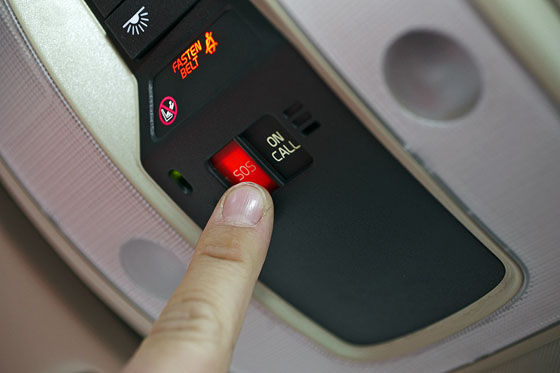The requirement for vehicles enters into force at the EEU
Since January 1, 2017, in accordance with the technical regulations of the Eurasian Economic Union (EEU) "About the safety of wheeled vehicles", the requirement for their mandatory equipment in the allied countries to call emergency services is coming into force. These are machines produced in the EEU and belonging to a type whose conformity assessment was not carried out until the named date. The requirement does not apply to cars that were in use before the new standard came into force.
"The mandatory installation of such equipment on road transport is an important stage of the work being carried out by the Eurasian Economic Commission (EEC) in cooperation with the states of the Union to further improve the safety of wheeled vehicles," said Valery Koreshkov, member (Minister) of the Board for Technical Regulation of EEC.
In the event of an accident, the equipment installed on the machine in automatic mode or by pressing the "alarm button" informs the relevant services. Having received the signal, they send their brigades, including medical ones, as quickly as possible to the scene of the incident. The rule of the so-called "golden hour" is observed, when the victim has the greatest chance of survival. The prompt provision of medical care and the preservation of lives, in fact, is the main goal of creating national systems for calling emergency services in allied countries.
It should be noted that most types of vehicles issued for circulation in the EEA states have undergone confirmation on new requirements. So, according to the Ministry of Industry and Trade of Russia, by December 20 this year all major automotive brands - from the mass segment (LADA, Hyundai, KIA, Renault, Volkswagen, etc.) to premium (BMW, Mercedes, Porsche, Bentley, Rolls Royce, etc.) ), Supplying their products to the Union, have completed or complete the equipping of cars with an "alarming" system.
The Eurasian Union is on this issue a step ahead of the European one, where similar requirements will be introduced only in April 2018. But many of the world's brands have already installed on the auto-produced equipment designed for the operation of the respective systems.
With regard to machines imported by individuals from third countries, the same requirements apply. Citizens wishing to privately bring into the EEU after January 1, 2017 transport (both new and used), it must be remembered that, for example, a car must have a built-in operational system for emergency emergency services.





